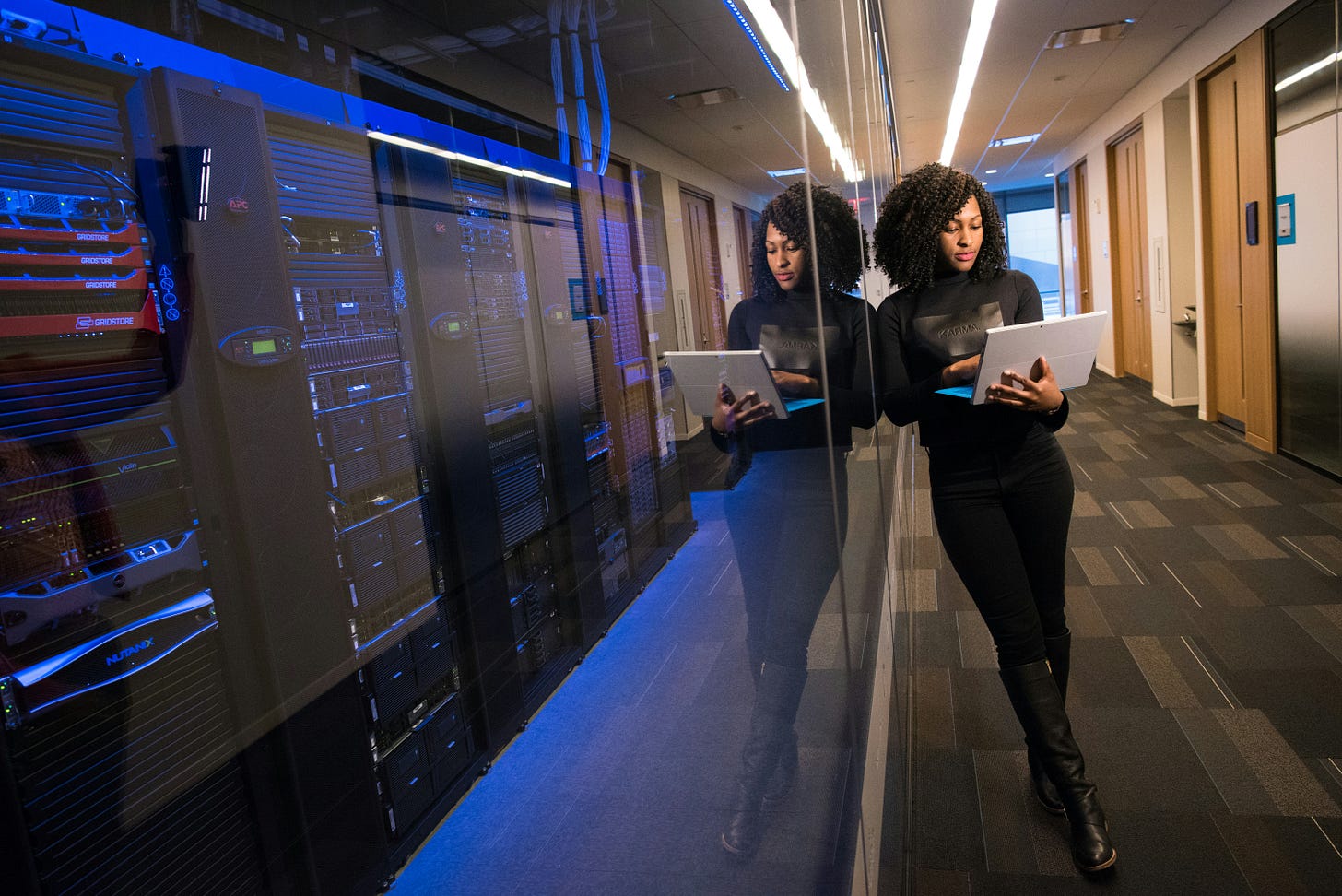
One of the things that excites me about Bitcoin is the human capital that it unleashes.
I’ve met many people from many walks of life doing many incredible things in the Bitcoin space.
This week, CoinDesk published two pieces I wrote on such people for its “Future of Bitcoin” month.
These people are Kgothatso Ngako (KG), founder of Machankura, and Lorraine Marcel, founder of Bitcoin Dada.
I’ve included a link to these pieces as well as my introduction to both pieces in the sections below.
I highly recommend reading both, as I think you’ll be incredibly inspired by not only the intellectual capacity of KG and Marcel but the size of their hearts.
Kgothatso Ngako of Machankura
Click on image below to read the full text. Scroll down to read the introduction to it.
Kgothatso Ngako’s Machankura startup is proving that Bitcoin can be useful to people even when they don’t have a fancy phone, or even an internet connection.
Machankura, which is slang for “money” in Ngako’s home country South Africa, is a software tool that allows users to transact with bitcoin over the Lightning Network, a Bitcoin Layer 2 payment network, on pre-smartphone mobile devices (feature phones).
It’s the first consumer technology that allows people to use bitcoin without an internet connection — an ingenious way of bringing the asset to the financially disenfranchised.
This feature is part of CoinDesk’s “Future of Bitcoin” package published to coincide with the 4th Bitcoin “halving” in April 2024.
Ngako, a 30-year-old former Amazon Web Services (AWS) developer, released Machankura into the world in the middle of 2022. And it has taken off since Ngako last spoke with CoinDesk in April 2023. Its user base has jumped from 3,500 to 13,600 in just under a year, according to Ngako, and the company is currently providing services to residents of seven African countries. Things are on the up and up, and still Ngako wants to continue pushing forward.
The next stage for Machankura, which is currently only a custodial Lighting solution, is enabling Africans to hold their own private keys, bringing them true financial self-sovereignty.
In January, at Adopting Bitcoin Cape Town this past January, an event Ngako helped organize, he announced Machankura’s Bitcoin Java Card project, which will let feature phones double as non-custodial Bitcoin wallets. Java Card is software that allows applets, basic computer programs that perform specific tasks, to run on smart cards, which communicate with the SIM cards in the phones. In this case, the Java Card software will enable African users to hold their bitcoin private keys, sign transactions and see their UTXO balance.
I spoke with Ngako virtually to discuss this ambitious undertaking and to get some more details about what this next iteration of Machankura will look like in practical terms. We also talked about why self-custody is essential for African users.
Lorraine Marcel of Bitcoin Dada
Click on image below to read the full text. Scroll down to read the introduction to it.
In mid-2022, Lorraine Marcel was struggling to make ends meet as an events planner in Kenya, her home country, when a client asked her to organize a Bitcoin meet-up. She was already familiar with crypto, but didn’t see assets like bitcoin as anything other than speculative tools.
During the meet-up, she learned what differentiates Bitcoin from other crypto assets and networks. She realized bitcoin could help her offset some of her financial struggles, which were in part caused by the ongoing debasement of the Kenyan shilling.
This feature is part of CoinDesk’s “Future of Bitcoin” package published to coincide with the 4th Bitcoin “halving” in April 2024.
She learned this despite feeling intimidated by the male-dominated Bitcoin space.“One of the things that keeps females away from participating in such spaces is the fact that they don't see other representation, whether the men are welcoming or not,” Marcel said in an interview.
“I wanted to create a community where ladies can come and converse, communicate and engage in financial matters without feeling intimidated, without feeling some sense of fear, and then try to grow their confidence to [help them] contribute in the financial space.”
And so Marcel started Bitcoin Dada (Dada means “sister” in Swahili), a program that not only teaches African women about Bitcoin and finance but also provides a safe space for them to bond and support one another. The course runs for six weeks, and features live, interactive virtual classes on Tuesday and Thursday evenings. The current cohort is comprised of 168 African women, hailing from across the continent.
In less than two years, Bitcoin Dada has been featured in Forbes Digital Assets and sponsored by institutions like the Human Rights Foundation (HRF). But this is only the beginning, according to Marcel, who wants to keep going until she’s helped trained female leaders like herself across Africa.
Thanks for reading and big hug!
Best,
Frank
Nostr | X | LinkedIn | YouTube | Instagram | Spotify | Apple Podcasts | Fountain






